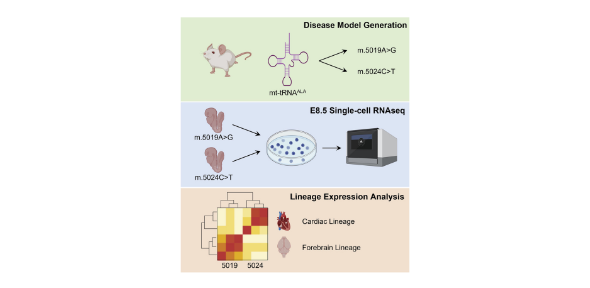
Submitted by Penny Peck on Mon, 27/02/2023 - 15:05
Mitochondria are essential for cell function and contain their own genome (mtDNA). Mutations of mtDNA are a major cause of inherited disease but it is known why they target some organs and not others. In a research study led by Patrick Chinnery and recently published in Cell, Cambridge researchers used high-throughput single cell approaches to cast light on the underlying mechanisms in vivo.
Studying normal and mtDNA disease mice, Stephen Burr, Angelos Glynos and Malwina Prater in Patrick Chinnery’s lab (MRC Mitochondrial Biology Unit & Clinical Neurosciences), discovered cell-type specific mitochondrial signatures emerging during embryonic development before organ formation is complete. These included gene transcripts for tissue-specific isoforms, ‘pre-empting’ the future mitochondrial needs in the mature organ. Michal Minczuk and members of the Mitochondrial Genetics laboratory, Pavel Nash and Christopher Powell, collaborated by performing characterisation experiments.
Disrupting mitochondrial function induced different transcriptional responses in each cell lineage. This included the down regulation of transcription factors known to buffer against mitochondrial insults.
These findings provide an explanation why some cell types are more resilient to mitochondrial defects than others, and are new treatment targets.
Publication reference:
Burr SP, Klimm F, Glynos A, Prater M, Sendon P, Nash P, Powell CA, Simard ML, Bonekamp NA, Charl J, Diaz H, Bozhilova LV, Nie Y, Zhang H, Frison M, Falkenberg M, Jones N, Minczuk M, Stewart JB, Chinnery PF.
Cell lineage-specific mitochondrial resilience during mammalian organogenesis.
Cell. 2023 Feb 17:S0092-8674(23)00093-4. doi: 10.1016/j.cell.2023.01.034. Epub ahead of print. PMID: 36827974.

